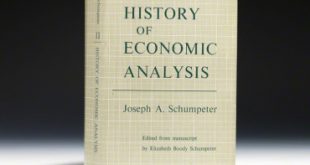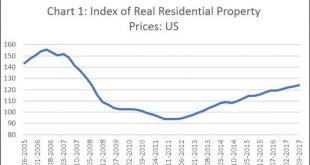from Lars Syll Coupled with downright incompetence in statistics, we often find the syndrome that I have come to call statisticism: the notion that computing is synonymous with doing research, the naïve faith that statistics is a complete or sufficient basis for scientific methodology, the superstition that statistical formulas exist for evaluating such things as the relative merits of different substantive theories or the “importance” of the causes of a “dependent variable”; and the...
Read More »Are we at full employment? taking issue with Paul Krugman
from Dean Baker Paul Krugman had an interesting blog post this morning in which he attributed the continuing weakness of wage growth to an increase in monopsony power. I’m a skeptic on this one, since the collapse in wage growth happens to coincide with the Great Recession. The big issue is whether the labor market is again back to its pre-recession level of tightness, when wages were rising considerably more rapidly. To argue the case that it is, Krugman follows Jason Furman in...
Read More »Is the Job Guarantee a Ponzi Scheme?
“The basic idea is that the government can’t run out of money. It creates money just by spending.” — Stephanie Kelton This is true. Government cannot run out of its own money. But what is money? It is a token or pledge that can be redeemed for something of value. If government creates much more money that there are things of value to redeem it for the prices of those things go up. Not to worry, Zach Carter assures us: But even inflation doesn’t impose a...
Read More »Jobs, Jobs, Jobs: GUARANTEED! — May 20 update
Class war? What class war? Stephanie Kelton Has The Biggest Idea In Washington “Everybody wants a piece of Kelton these days because a simple, radical idea she has been workshopping her entire career is the next big thing in Democratic Party politics. She calls it the job guarantee… “ “Once an outsider, her radical economic thinking won over Wall Street. Now she’s changing the Democratic Party.” “A onetime college dropout at California State...
Read More »Understanding Macro II: Post-war prosperity
from Asad Zaman In part 1 of this article (Understanding Macro: The Great Depression (1/3), we saw that Keynes challenged classical economics on many fronts. Against the classical idea that free markets will automatically eliminate unemployment, he argued that governments needed to adopt appropriate fiscal and monetary policy in order to create full employment, as a necessary condition for high economic growth. He also argued that money is not neutral, and that there is fundamental...
Read More »Decline of working hours over long-run
https://dunstewart.wordpress.com/tag/work/
Read More »Schumpeter — an early champion of MMT
from Lars Syll Evidently this phenomenon is peculiar to money and has no analogue in the world of commodities. No claim to sheep increases the number of sheep. But a deposit, though legally only a claim to legal-tender money, serves within very wide limits the same purposes that this money itself would serve. Banks do not, of course, ‘create’ legal- tender money and still less do they ‘create’ machines. They do, however, something—it is perhaps easier to see this in the case of the issue...
Read More »The return of a Housing Bubble – (4 graphs)
from C. P. Chandrasekhar and Jayati Ghosh Even while optimistic assessments of growth trends in the global economy proliferate, concerns that the unwinding of inflated asset price markets could abort the recovery are being expressed. Interestingly, there appears to be a substantial degree of agreement on the cause for such uncertainty, which is an excessive dependence on monetary measures in the form of quantitative easing and the associated extremely low interest rate environment to...
Read More »how to write critical analytical essay
how to write critical analytical essay Essay 4 Tips.The rest of the essay explores what it means for bestessayswriter Meghan to constantly see this reminder of failure and to transform it into a sense of acceptance of her imperfections.Jennifer holds a PhD and a master’s in library and information studies (MLIS) from the University of Alabama, [...]
Read More »Utopia and markets
from David Ruccio Maarten Vanden Eynde, The Invisible Hand (2015)* We hear it all the time. On a regular basis. Having to do with pretty much everything. Why is the price of gasoline so high? Mainstream economists respond, “it’s the market.” Or if you think you deserve a pay raise, the answer again is, “go get another offer and we’ll see if you’re worth it according to ‘the market’.” Alternatively, if you want to solve a particularly pressing problem—such as climate change,...
Read More » Heterodox
Heterodox






